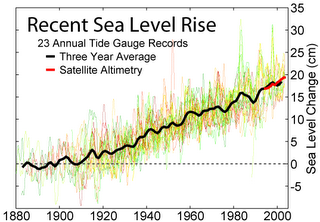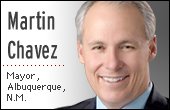Lactic Acid Is Not Muscles' Foe, It's Fuel
Everyone who has even thought about exercising has heard the warnings about lactic acid. It builds up in your muscles. It is what makes your muscles burn. Its buildup is what makes your muscles tire and give out.
Coaches and personal trainers tell athletes and exercisers that they have to learn to work out at just below their "lactic threshold," that point of diminishing returns when lactic acid starts to accumulate. Some athletes even have blood tests to find their personal lactic thresholds.
But that, it turns out, is all wrong. Lactic acid is actually a fuel, not a caustic waste product. Muscles make it deliberately, producing it from glucose, and they burn it to obtain energy. The reason trained athletes can perform so hard and so long is because their intense training causes their muscles to adapt so they more readily and efficiently absorb lactic acid.
The notion that lactic acid was bad took hold more than a century ago, said George A. Brooks, a professor in the department of integrative biology at the University of California, Berkeley. It stuck because it seemed to make so much sense.
"It's one of the classic mistakes in the history of science," Dr. Brooks said.
Its origins lie in a study by a Nobel laureate, Otto Meyerhof, who in the early years of the 20th century cut a frog in half and put its bottom half in a jar. The frog's muscles had no circulation — no source of oxygen or energy.
Dr. Myerhoff gave the frog's leg electric shocks to make the muscles contract, but after a few twitches, the muscles stopped moving. Then, when Dr. Myerhoff examined the muscles, he discovered that they were bathed in lactic acid.
A theory was born. Lack of oxygen to muscles leads to lactic acid, leads to fatigue.
Athletes were told that they should spend most of their effort exercising aerobically, using glucose as a fuel. If they tried to spend too much time exercising harder, in the anaerobic zone, they were told, they would pay a price, that lactic acid would accumulate in the muscles, forcing them to stop.
Few scientists questioned this view, Dr. Brooks said. But, he said, he became interested in it in the 1960's, when he was running track at Queens College and his coach told him that his performance was limited by a buildup of lactic acid.
When he graduated and began working on a Ph.D. in exercise physiology, he decided to study the lactic acid hypothesis for his dissertation.
"I gave rats radioactive lactic acid, and I found that they burned it faster than anything else I could give them," Dr. Brooks said.
It looked as if lactic acid was there for a reason. It was a source of energy.
Dr. Brooks said he published the finding in the late 70's. Other researchers challenged him at meetings and in print.
"I had huge fights, I had terrible trouble getting my grants funded, I had my papers rejected," Dr. Brooks recalled. But he soldiered on, conducting more elaborate studies with rats and, years later, moving on to humans. Every time, with every study, his results were consistent with his radical idea.
Eventually, other researchers confirmed the work. And gradually, the thinking among exercise physiologists began to change.
"The evidence has continued to mount," said L. Bruce Gladden, a professor of health and human performance at Auburn University. "It became clear that it is not so simple as to say, Lactic acid is a bad thing and it causes fatigue."
As for the idea that lactic acid causes muscle soreness, Dr. Gladden said, that never made sense.
"Lactic acid will be gone from your muscles within an hour of exercise," he said. "You get sore one to three days later. The time frame is not consistent, and the mechanisms have not been found."
The understanding now is that muscle cells convert glucose or glycogen to lactic acid. The lactic acid is taken up and used as a fuel by mitochondria, the energy factories in muscle cells.
Mitochondria even have a special transporter protein to move the substance into them, Dr. Brooks found. Intense training makes a difference, he said, because it can make double the mitochondrial mass.
It is clear that the old lactic acid theory cannot explain what is happening to muscles, Dr. Brooks and others said.
Yet, Dr. Brooks said, even though coaches often believed in the myth of the lactic acid threshold, they ended up training athletes in the best way possible to increase their mitochondria. "Coaches have understood things the scientists didn't," he said.
Through trial and error, coaches learned that athletic performance improved when athletes worked on endurance, running longer and longer distances, for example.
That, it turns out, increased the mass of their muscle mitochondria, letting them burn more lactic acid and allowing the muscles to work harder and longer.
Just before a race, coaches often tell athletes to train very hard in brief spurts.
That extra stress increases the mitochondria mass even more, Dr. Brooks said, and is the reason for improved performance.
And the scientists?
They took much longer to figure it out.
"They said, 'You're anaerobic, you need more oxygen,' " Dr. Brooks said. "The scientists were stuck in 1920."
See more on lactic acid @ Wikipedia






